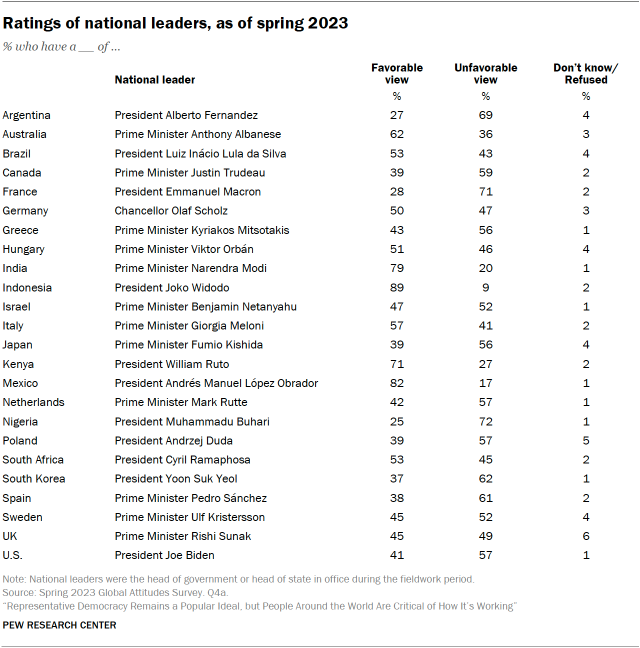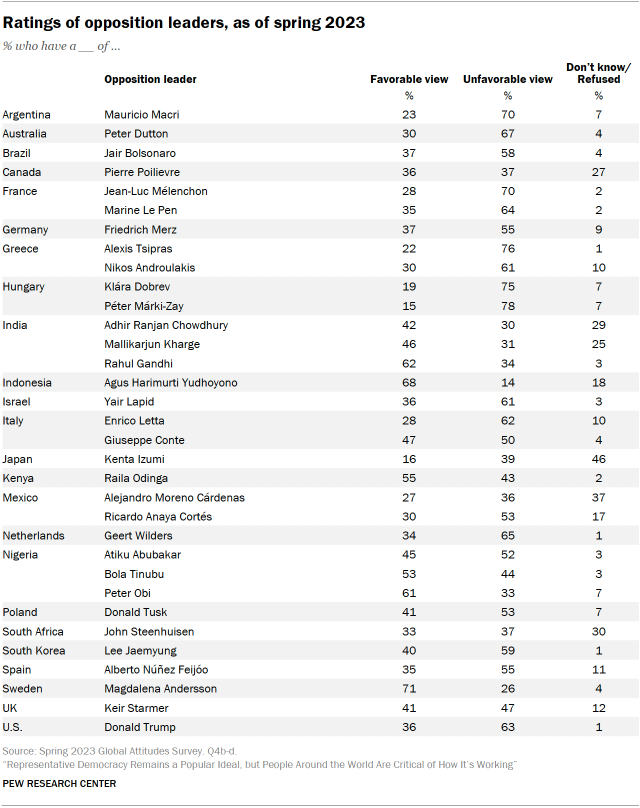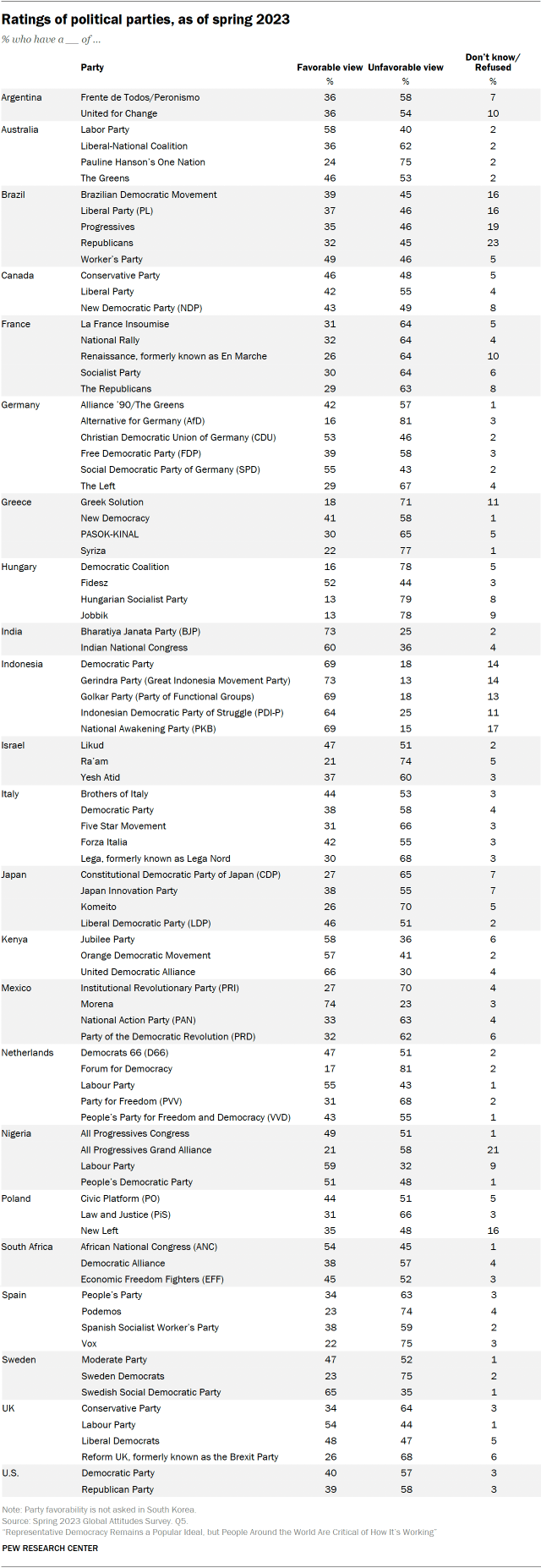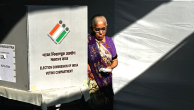All ratings for political leaders and parties were collected between Feb. 20 and May 22, 2023. Refer to our international methodology website for specific fieldwork dates for each country. We worked with local research partners in each country to identify the most relevant politicians and parties as of fall 2022, when the questionnaire was finalized.
National leaders included in the survey were the head of state or head of government in office at the time of fielding. Since fieldwork ended, Indonesia held a general election in which the then-incumbent president, Joko Widodo, was not eligible to run due to term limits. Argentina elected a new president, Javier Milei, who took office in December 2023. In Nigeria, fieldwork took place immediately following the election on Feb. 25, 2023. Bola Tinubu won the election but did not officially take office until May, after fieldwork was complete. Therefore, we classify former president Muhammadu Buhari as the leader of Nigeria at the time of the survey.
Politicians included as opposition leaders in the survey are generally the leader of the main opposition party. In some instances where an election occurred around the time of the survey, we measured attitudes toward the leading candidate(s). And in some countries, if there was no clear single opposition leader, we asked for ratings of multiple politicians.
In some countries, the opposition leader when the survey was fielded is now part of a governing coalition. In Poland, for example, Donald Tusk became prime minister after his party, Civic Platform, and other opposition parties won enough seats in the October 2023 elections to form a majority coalition. For our analysis, President Andrzej Duda is considered the leader of the country since the president has the power to appoint the prime minister and, in specific situations, dissolve parliament.
In the Netherlands, then-opposition leader Geert Wilders’ Party for Freedom won the most seats in the November 2023 elections, though this far he has struggled to form a coalition. Until a coalition government is set, Mark Rutte remains the leader of a caretaker government and the next leader is unknown.
We also asked about between two and six political parties in each country depending on the number of major parties, as well as input from our local research partners. These generally include the main party in power or the largest party or parties in a coalition government, and at least one major opposition party. In Europe, we have historically asked for ratings of major populist parties, even if they often do not receive large shares of the votes in national elections.







